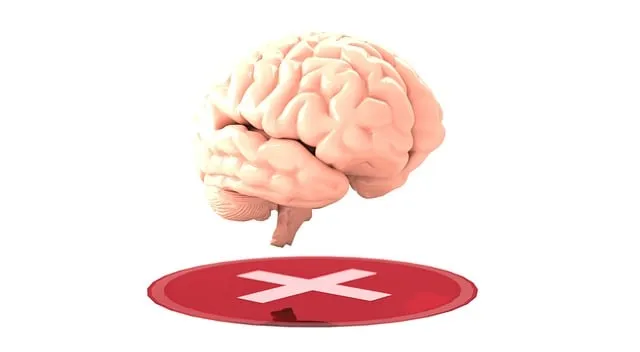Lone Tree's strong community ties make it an ideal location for Kaiser's mental health initiatives, which focus on open discussions, tailored programs, and holistic well-being. By leveraging local social fabric, these programs empower individuals to take control of their mental health. Overcoming stigma through education and collaboration with local leaders, schools, and community centers amplifies access across demographics. Interactive workshops and effective impact measurement methods ensure positive outcomes, making Lone Tree's Kaiser a valuable resource for advancing mental health within the community.
Lone Tree, with its strong community ties, has emerged as a beacon for Kaiser’s mental health initiatives. This article explores how community outreach programs, rooted in understanding local needs, can significantly impact mental wellness. We delve into designing engaging programs, navigating challenges, and measuring success through case studies. Discover why Lone Tree’s approach makes it an ideal model for widespread adoption, demonstrating that access to quality mental health support begins with strong community partnerships.
- Understanding Community Outreach: Why Lone Tree is Kaiser's Strength for Mental Health Initiatives
- Designing Effective Programs: Strategies to Engage and Support Local Communities
- Overcoming Challenges: Implementation Tips for Success in Mental Health Outreach
- Measuring Impact: Evaluating the Effectiveness of Lone Tree's Kaiser Community Programs
Understanding Community Outreach: Why Lone Tree is Kaiser's Strength for Mental Health Initiatives

Lone Tree stands out as a powerful asset for Kaiser’s mental health initiatives due to its unique blend of community engagement and comprehensive resources. This vibrant neighborhood offers a fertile ground for addressing mental illness stigma reduction efforts, fostering self-awareness exercises, and providing platforms for social skills training. By leveraging the strong connections within the community, Lone Tree enables targeted programs that cater to diverse needs, ensuring effective support for individuals grappling with various mental health challenges.
The locale’s robust social fabric serves as a catalyst for mental wellness promotion. Kaiser can leverage this to create inclusive environments where residents feel comfortable discussing mental health openly, breaking down barriers, and encouraging peer support networks. With Lone Tree as its strategic focal point, Kaiser can implement initiatives that not only provide direct services but also cultivate a supportive ecosystem that empowers individuals to take charge of their mental well-being.
Designing Effective Programs: Strategies to Engage and Support Local Communities

Lone Tree’s Kaiser offers a unique opportunity to enhance mental health through comprehensive community outreach programs. Designing effective initiatives requires a deep understanding of local needs and preferences. Involving community members in the planning process ensures relevance and engagement, fostering a sense of ownership.
Focusing on holistic well-being, these programs can incorporate various strategies. Mental wellness workshops promoting self-care routine development for better mental health are valuable additions. Social skills training sessions can also empower individuals, building connections and support networks within the community. By combining education, engagement, and empowerment, Lone Tree’s Kaiser can create impactful outreach that improves lives.
Overcoming Challenges: Implementation Tips for Success in Mental Health Outreach

Implementing community outreach programs for mental health initiatives can be a transformative process, especially when tailored to address the unique needs of diverse populations. Overcoming challenges is crucial for ensuring success in Lone Tree, where Kaiser’s presence promotes good mental health practices. One key tip involves understanding and normalizing conversations around mental wellness. Educating community members on breaking down stigmas associated with seeking help empowers individuals to take charge of their mental health.
Engaging local leaders and organizations can amplify the impact. Collaborating with schools, churches, or community centers facilitates access to various demographics, including youth, families, and older adults. Incorporating interactive workshops focused on stress management and confidence-boosting techniques can be game-changers. Such initiatives empower individuals to manage their mental health proactively, fostering a supportive environment that encourages open dialogue about emotional well-being.
Measuring Impact: Evaluating the Effectiveness of Lone Tree's Kaiser Community Programs

Lone Tree’s Kaiser Community Programs have shown significant promise in fostering mental health initiatives within their community. Measuring impact is crucial to understanding the effectiveness of these programs, and various methods can be employed to gauge success. By evaluating participant feedback, tracking improvements in key metrics related to mental well-being, and conducting regular surveys, the organization can assess the tangible benefits brought about by its initiatives.
The Stress Management Workshops Organization, for instance, has seen positive outcomes in terms of enhanced stress reduction techniques among attendees. Similarly, the Mental Health Policy Analysis and Advocacy efforts have contributed to increased awareness and a more holistic mental health approach within the community. These evaluations underscore Lone Tree’s Kaiser commitment to not just organizing programs but also ensuring they are good for mental health by fostering positive thinking and sustainable well-being practices.
Lone Tree emerges as a shining example of how Kaiser can effectively support mental health initiatives through community outreach programs. By understanding local needs, designing engaging strategies, overcoming challenges with thoughtful planning, and continuously measuring impact, Kaiser can replicate the success seen in Lone Tree across various communities. This approach not only enhances mental well-being but also strengthens the bond between healthcare providers and the people they serve.






